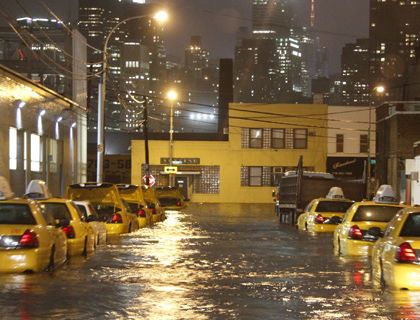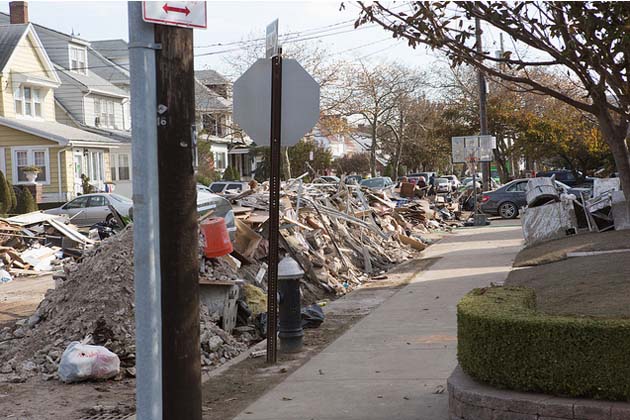
Wang Chengyun/ZUMA
On Tuesday, the Senate is expected to finally approve a Sandy aid package worth about $50 billion, three months after the hurricane devastated major metropolitan regions on the East Coast. Many GOP representatives bitterly oppose this bill and an immediate relief package failed to pass the GOP-controlled House in 2012. But when it comes to hurricane relief, the GOP isn’t exactly consistent: In 2005, 58 House Republicans who voted no on the Sandy aid bill approved a disaster relief package for Katrina victims worth $51.8 billion—less than two weeks after the storm hit.
The map below shows states where representatives voted on both Katrina and Sandy aid bills but changed their votes. For example, Florida, which was slammed by Katrina, has two GOP reps who voted for Katrina aid and nixed disaster relief for their Northern neighbors. States that suffered less severe Katrina damages, like Ohio, Georgia and Tennessee, are all represented by Republicans who chose to support the victims of Katrina but not Sandy. Louisiana is the exception; the lawmakers that have been around through both hurricanes appear to still have Katrina’s aftermath fresh in their minds: Republican Reps. Charles Boustany and Rodney Alexander both supported aid for Sandy.
Conservatives are using the usual argument that the Sandy aid bill had more pork and wasteful spending than the Katrina aid bill. Jason Klindt, a spokesman for Rep. Sam Graves (one of the reps who voted for Katrina aid and against Sandy aid), told ProPublica that “the difference is the fiscal state of the country.”

But Michele Dauber, a Stanford law professor and author of The Sympathetic State: Disaster Relief and the Origins of the American Welfare State, says that this doesn’t tell the whole story: “Although blue NOLA was hit, the rest of the states on the Gulf are red states, and Louisiana has a lot of red parts.” She points out that “House Republicans have got themselves tied into kind of a pretzel” because “they have made ideological commitments against pork.” Dauber says it’s possible those Republicans who voted against the bill did so in order to fend off challenges in the primaries from Tea Party and other rightist candidates, a risky political maneuver, as “voting against disaster relief is super stupid.”
That’s a lesson Rep. Scott Garrett (R-N.J.) appears to have learned the hard way: Before his state was hit by Sandy, he voted against aid for Katrina. He’s the only GOP representative in the United States that was present for both disasters, and changed his mind in the end.
Correction: A previous version of the key stated that the purple area refers to a Democrat. It refers to Scott Garrett, a Republican.












